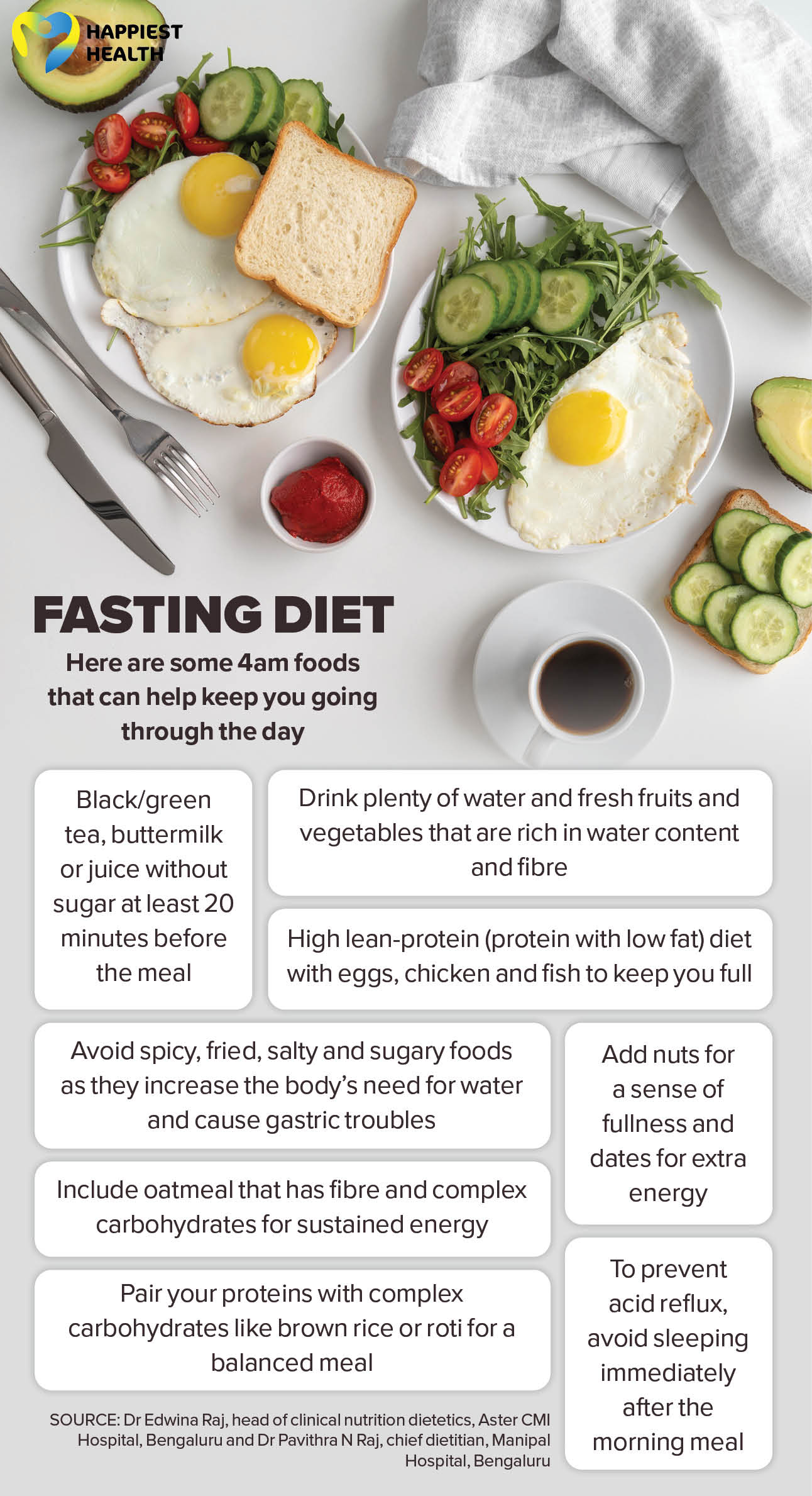
The month of Ramadan is about purity in thought and action, spirituality, gratitude and discipline. Fasting, which brings about a change in the daily routine, could throw off your fitness regimen. However, if you train the right way and eat healthily, keeping in mind the energy deficit, you can still exercise safely during this month, say experts.
The good thing about Ramadan is that people become consistent in their routine – sleeping, waking up and eating at certain fixed times. But the change means people should also adjust their fitness routines (time of workout, frequency and intensity).
Exercising during Ramadan fasting
Since it is difficult to maintain a gym or high-intensity workout routine while fasting, one should ideally go for low-intensity exercises. Brisk walking and stretching exercises – for a 30-minute duration – help maintain body flexibility and mobility. Breathing exercises, which enhance lung capacity, can also be done.
“The best time to exercise during Ramadan is before iftar [the fast-breaking post-sunset meal],” says Umme Sana, nutritionist at Rustic Wisdom, Bengaluru. “Exercising before sehri [the morning meal before sunrise] is also OK.”
Breaking your fast after a workout helps refuel the body. Moreover, the intake of proteins will help repair the wear and tear of muscles that happens during exercise.
“People lose muscle mass while fasting, so they should never do high-intensity exercises at this time,” adds Sana. “That’s why the intake of protein becomes important. Exercises can be a combination of cardio (like walking or jogging) and muscle-training workouts (such as lifting light weights).”
If a person feels low on energy and doesn’t want to work out, they could do so post-iftar — but ideally one hour after eating the meal since the body needs to digest the food first.
Exercising after sehri is not recommended — working out at that time may result in energy drain since food will not be consumed until iftar.
“A person should not spend their whole energy by doing workouts,” adds Sana. “They might start to feel hungry and drained out in the morning itself.”
Sudam Shelar, a personal trainer from Mumbai, says, “Exercise after iftar helps but one should keep the first meal light and save the biggest meal for after the workout session.”

Right food during Ramadan
People must keep themselves hydrated during the eating window, The food should be a mix of protein, carbohydrates, fibres and wholegrains. During sehri, the focus should be more on fibres as they help keep the stomach full.
Hydration during iftar is also important. Drink at least three glasses of water and other hydrating drinks like coconut water, buttermilk and fruit juices to balance electrolytes. Avoid fried items and overeating after breaking the fast.
“Eating healthy helps maintain the energy levels,” adds Sana. “But if you start including lots of carbs and having too much of deep-fried foods, you will start feeling lethargic and low on energy.”
Post-Ramadan exercise routine
It is essential to get back on track after a month of fasting, but jumping right back into your usual fitness routine is not recommended.
Post-Ramadan, one should be especially mindful of what they are eating for a few weeks. “Including fibre helps to keep the body heat in control and helps to aid digestion,” says Shelar. “Protein intake is important to maintain muscle mass. This will help you get back your physique and strength quicker after the Ramadan fasting month is over.”
Getting back to high-intensity workouts is not recommended post-fasting. Since the body takes time to adjust to a new routine, it will be strained if drastic changes are made in the level of physical activity.
“Usually, it is advised to get back to the usual routine after two weeks of low-intensity exercises,” adds Shelar. “But taking it in a slow manner is recommended as each body reacts differently.”
Takeaways
- While fasting, it is difficult to maintain a routine such as exercising in the gym or doing high-intensity workouts.
- Doing low-intensity exercises such as walking, simple stretching and breathing exercises is recommended during Ramadan fasting. The ideal time to exercise is either before iftar or before sehri.
- It is essential to get back on track after a month of fasting. But returning to your usual fitness routine immediately is not recommended. Increase the intensity in small steps over the course of a couple of weeks.

















